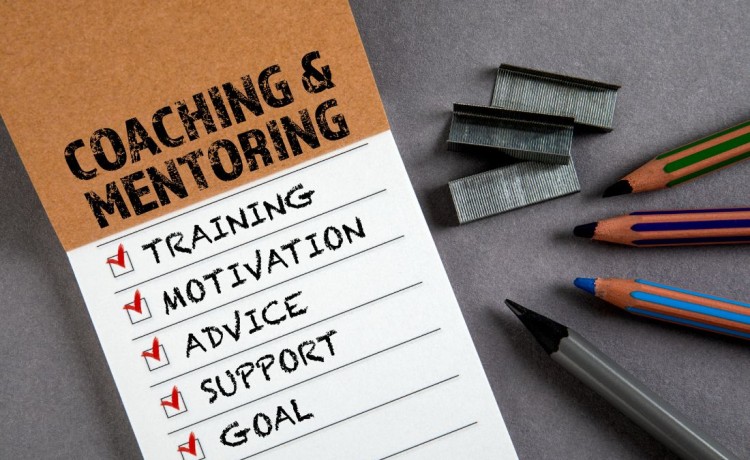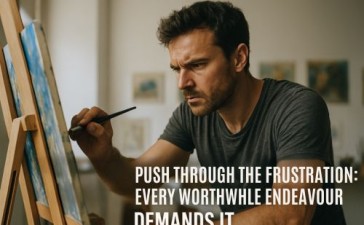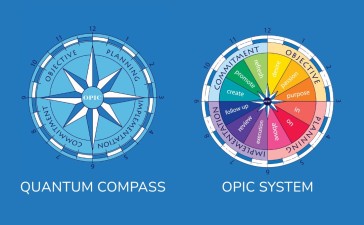The terms coaching, mentoring, and training are often used interchangeably, but they each have distinct characteristics and purposes. Understanding these differences is crucial for artists and surface designers, as each approach offers unique benefits. At ArtSHINE, we employ all three methods to support the growth and development of our artists and designers, tailoring our approach to meet their specific needs. This article explores the key differences between coaching, mentoring, and training, using examples from ArtSHINE’s practices.
Coaching: Personalized Development
Definition and Approach Coaching is a structured and goal-oriented process that focuses on the individual’s development. It involves a coach working with an artist to enhance their skills, overcome challenges, and achieve specific career or personal goals. The coaching process is typically short-term and revolves around the client’s current projects and objectives.
Example at ArtSHINE At ArtSHINE, coaching for artists and surface designers often involves setting clear, actionable goals. For instance, an artist might seek coaching to develop a cohesive portfolio or to improve their marketing strategies. The coach helps the artist identify strengths and weaknesses, sets measurable goals, and provides regular feedback. This process is highly individualized and adjusts to the artist’s pace and needs.
For example, an emerging surface designer might work with a coach to refine their pattern designs for a particular market. The coach would provide insights into current market trends, help the designer hone their techniques, and offer constructive feedback on their work. The focus remains on empowering the designer to achieve their specific objectives.
Key Characteristics
- Goal-oriented and short-term
- Focuses on specific skills and challenges
- Personalized feedback and support
- Regular, structured sessions
Mentoring: Long-Term Relationship and Guidance
Definition and Approach Mentoring involves a more experienced individual (the mentor) providing guidance, advice, and support to a less experienced person (the mentee). This relationship is typically long-term and encompasses broader career and personal development aspects. Mentors share their experiences, offer wisdom, and help mentees navigate their career paths.
Example at ArtSHINE In the context of ArtSHINE, mentoring is particularly valuable for artists looking to establish themselves in the industry. A mentor, who is often a seasoned artist or designer, might guide a mentee through the complexities of the art world, offering insights that go beyond immediate project goals. This could include advice on building a sustainable career, networking, and finding inspiration.
For instance, a mentor might help a new artist understand the nuances of art licensing, share experiences about successful exhibitions, and provide moral support during challenging times. The mentor’s role is to be a trusted advisor and confidant, helping the artist grow over a prolonged period.
Key Characteristics
- Long-term relationship
- Broad focus on career and personal development
- Advice based on experience
- Supportive and nurturing
Training: Skill Acquisition and Knowledge Transfer
Definition and Approach Training is a systematic approach to learning that focuses on the acquisition of specific skills or knowledge. It is usually delivered through structured programs or workshops and aims to equip individuals with the tools they need to perform particular tasks effectively. Training can be short-term or ongoing, depending on the skills being taught.
Example at ArtSHINE Training at ArtSHINE often takes the form of workshops, seminars, or courses designed to teach artists and designers new techniques, software, or business skills. For example, ArtSHINE might offer a workshop on using Adobe Illustrator for surface design. This training would provide detailed instructions, hands-on practice, and resources for further learning.
Another example could be a business skills workshop where artists learn about pricing their work, managing finances, or developing a marketing plan. These training sessions are designed to impart specific skills that artists can immediately apply to their practice.
Key Characteristics
- Structured and systematic
- Focuses on specific skills or knowledge
- Can be short-term or ongoing
- Delivered through workshops, courses, or seminars
Comparing Coaching, Mentoring, and Training
Focus and Scope
- Coaching: Narrow focus on specific goals and skills, often short-term.
- Mentoring: Broad focus on overall career and personal development, long-term relationship.
- Training: Specific skill acquisition, structured and often short-term.
Relationship and Interaction
- Coaching: Professional relationship, structured interactions, and regular feedback.
- Mentoring: Personal relationship, less formal, ongoing support and advice.
- Training: Instructor-led, can be formal or informal, focused on teaching specific content.
Outcome and Objectives
- Coaching: Achieve specific, measurable goals.
- Mentoring: Holistic development and long-term career growth.
- Training: Acquire new skills or knowledge to enhance performance.
Integrating the Approaches at ArtSHINE
At ArtSHINE, we recognize that artists and surface designers benefit from a combination of coaching, mentoring, and training. Each approach serves different purposes and together they create a comprehensive support system.
For example, a new artist might start with training sessions to learn the technical skills needed for their craft. As they begin to produce work, they might engage in coaching to refine their portfolio and develop a marketing strategy. Simultaneously, they could be paired with a mentor who provides ongoing career guidance and moral support.
Conclusion
Understanding the distinctions between coaching, mentoring, and training allows ArtSHINE to offer tailored support to artists and surface designers at various stages of their careers. By leveraging the strengths of each approach, we help our clients achieve their immediate goals, develop long-term strategies, and acquire the skills they need to thrive in the competitive world of art and design. Whether through personalized coaching sessions, nurturing mentoring relationships, or structured training programs, ArtSHINE is committed to empowering artists to reach their full potential.
Want to learn more? We’re here to help you to take action, just like we’ve helped thousands of other entrepreneurs, business owners, and creative professionals all around the globe. Now is the time to let your passion SHINE. Now is the time to Make Tomorrow Today! To your success, Vinh Van Lam and Stuart Horrex Cofounders
ArtSHINE.com





